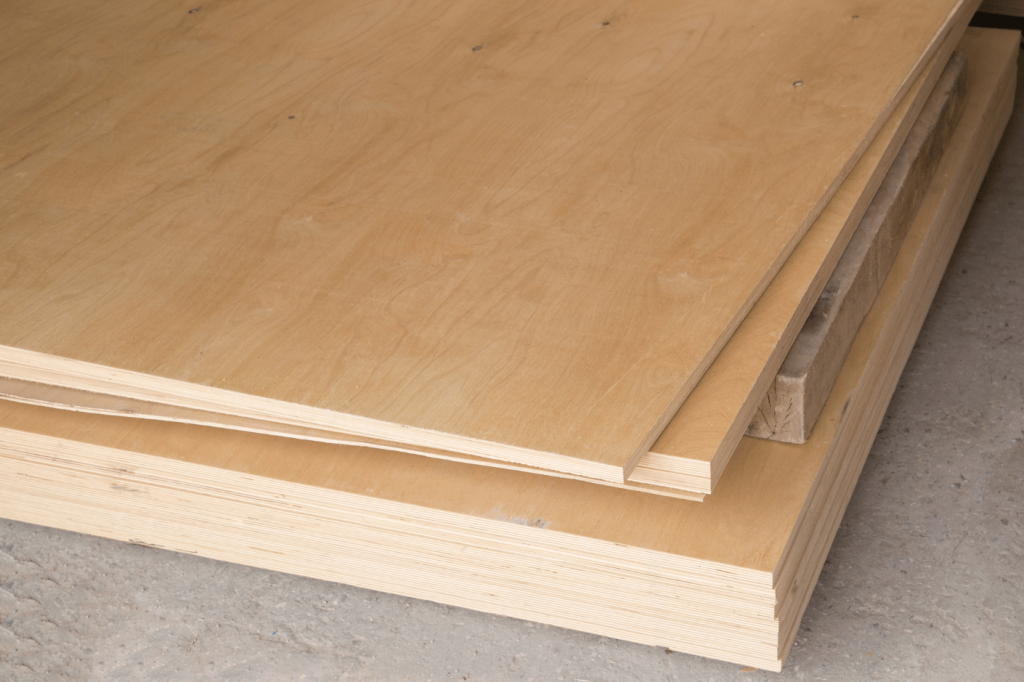When it comes to construction and woodworking projects, the quality of materials used plays a pivotal role in determining the outcome’s durability, aesthetics, and longevity.
Plywood, a versatile and widely used building material, comes in various types, with Gurjan plywood and calibrated plywood being two popular options known for their quality and performance. However, budget constraints often pose a challenge when selecting high-quality materials.
In this blog, we delve into the importance of budgeting for quality and provide insights into evaluating Gurjan plywood and calibrated plywood prices to make informed purchasing decisions.
Understanding Gurjan Plywood and Calibrated Plywood
Gurjan Plywood
Gurjan plywood is renowned for its exceptional strength, durability, and resistance to moisture and pests, making it a preferred choice for demanding applications in construction and furniture making.
It is manufactured from the wood of the Gurjan tree, native to Southeast Asia, and is known for its distinctive grain patterns and rich color.
Gurjan plywood is available in different grades, each offering varying levels of quality and aesthetics. Higher-grade Gurjan plywood is free from defects, such as knots and voids, and possesses superior structural integrity, making it suitable for premium projects where quality is paramount.
Calibrated Plywood
Calibrated plywood is engineered for precision and uniformity in thickness, ensuring consistent dimensions across the entire sheet.
It undergoes a specialized manufacturing process where each plywood sheet is meticulously calibrated to meet strict thickness tolerances, resulting in a flat, smooth surface ideal for applications requiring precise measurements.
Calibrated plywood is favored in industries such as cabinetry, millwork, and architectural installations, where dimensional accuracy is crucial for achieving flawless finishes and seamless installations.
Factors Influencing Plywood Prices
Grade and Quality
The grade and quality of plywood significantly impact Gurjan and calibrated plywood price. Higher-grade plywood, such as Grade A Gurjan plywood or premium calibrated plywood, commands a higher price due to its superior aesthetics, strength, and durability.
Lower-grade plywood may be more affordable but could compromise on quality, leading to issues such as warping, delamination, and reduced longevity.
When evaluating plywood prices, consider the intended use of the material and assess whether the additional cost of higher-grade plywood aligns with the project’s requirements and long-term objectives.
Thickness and Size
Plywood thickness and size also influence pricing. Thicker plywood sheets generally cost more than thinner ones due to the increased amount of raw material required and the additional manufacturing processes involved.
Larger plywood sheets may be more expensive due to transportation and handling costs associated with their size and weight.
Assess the structural requirements and design specifications of your project to determine the optimal plywood thickness and size. Avoid over-specifying thickness or size unnecessarily, as it can inflate material costs without adding significant value to the project.
Evaluating Price vs. Value
Long-Term Durability and Performance
While upfront costs are a crucial consideration, it’s essential to evaluate plywood prices in the context of long-term durability and performance.
Investing in high-quality plywood, such as Gurjan or calibrated varieties, may entail higher initial expenses but can result in substantial savings over the plywood’s lifespan.
Consider the cost of maintenance, repairs, and premature replacements associated with low-quality plywood. Opting for quality materials upfront can mitigate these expenses and ensure the longevity and structural integrity of your project.
Quality Assurance and Warranty
Assess the quality assurance measures and warranty provisions offered by plywood manufacturers and suppliers.
Reputable manufacturers often provide warranties or guarantees against manufacturing defects, ensuring peace of mind and protection against unforeseen issues.
Factor in the value of warranty coverage and after-sales support when comparing plywood prices. A higher-priced plywood with comprehensive warranty coverage may offer better long-term value and protection against potential risks and liabilities.
Exploring Alternative Suppliers
Expand Your Supplier Network
Don’t limit yourself to a single supplier when sourcing Gurjan plywood and calibrated plywood. Explore alternative suppliers and distributors to widen your options and potentially discover competitive pricing and value-added services.
Attend industry trade shows, networking events, and supplier showcases to connect with a diverse range of plywood manufacturers and distributors.
Building relationships with multiple suppliers not only increases your bargaining power but also mitigates the risk of supply chain disruptions. Having access to alternative sources ensures continuity of supply and minimizes dependence on a single supplier.
Consider Direct Purchases and Bulk Orders
Explore the possibility of purchasing plywood directly from manufacturers or mills to eliminate intermediary markups and secure more favorable pricing.
Direct purchasing allows you to negotiate prices, customize orders, and establish direct lines of communication with plywood manufacturers, facilitating efficient procurement processes.
Additionally, consider consolidating your plywood purchases into bulk orders to leverage volume discounts and cost-saving opportunities. Collaborate with other businesses or industry stakeholders to pool resources and achieve economies of scale, resulting in significant cost reductions per unit.
Prioritizing Sustainability and Environmental Responsibility
Evaluate Sustainable Sourcing Practices
Prioritize plywood suppliers that adhere to sustainable sourcing practices and environmental regulations. Look for certifications such as Forest Stewardship Council (FSC) or Programme for the Endorsement of Forest Certification (PEFC) that signify responsible forestry practices.
Sustainable sourcing ensures the ethical and environmentally conscious extraction of raw materials, minimizing the ecological footprint associated with plywood production.
By choosing sustainably sourced Gurjan plywood and calibrated plywood, you contribute to forest conservation efforts and support the preservation of biodiversity in ecosystems worldwide. Make sustainability a cornerstone of your procurement strategy to promote environmental stewardship and corporate social responsibility.
The Final Words
Budgeting for quality entails striking a balance between upfront costs and long-term value when evaluating calibrated plywood and Gurjan plywood price.
By understanding the factors influencing plywood prices, assessing the inherent value of high-quality materials, and considering long-term durability and performance, you can make informed decisions that align with your project requirements and budget constraints.
Remember, quality should always take precedence over cost when it comes to selecting materials that form the foundation of your construction and woodworking endeavors. In the pursuit of excellence, investing in premium plywood ensures superior results that stand the test of time.

